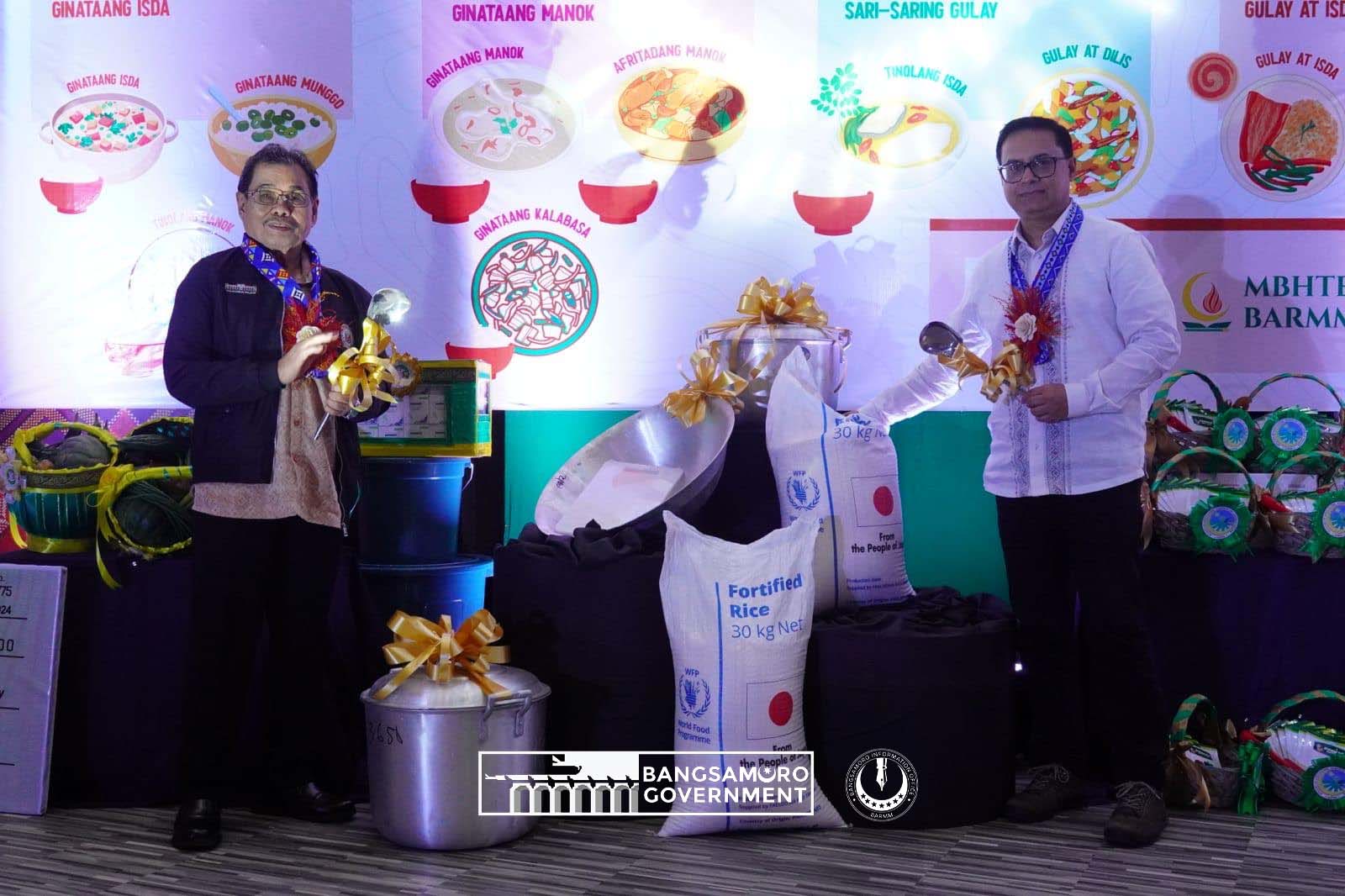Bangsamoro Government’s Education Minister Mohagher Iqbal (left) and World Food Programme’s (WFP) Deputy Country Director Dipayan Bhattacharyya launch on July 23, 2024 in Cotabato City the school feeding program that links smallholder farmers with local schools to enhance food production and distribution in the region. (Michael Camsa/BIO)
COTABATO CITY—Bangsamoro Government, in partnership with the World Food Programme (WFP), has established a school feeding program that links smallholder farmers with local schools to enhance food production and distribution.
On July 23 at the Shariff Kabunsuan Cultural Complex, the Home-Grown School Feeding (HGSF) program was officially launched aimed at addressing food insecurity, improving nutritional education, and ultimately enhancing health outcomes for learners in the Bangsamoro region.
The program will be piloted in seven towns in Maguindanao del Norte and Sur which include Datu Blah Sinsuat, Matanog, Sultan Mastura, Datu Abdullah Sangki, Datu Saudi Ampatuan, Upi, and South Upi.
Ministry of Basic, Higher, and Technical Education (MBHTE) Minister Mohagher Iqbal emphasized that the HGSF program is not just about providing food but also about fueling dreams, supporting aspirations, and laying the foundation for a healthier and more educated generation.
“By ensuring our children receive the nutrition they need, we empower them to reach their full potential, both academically and personally. The link between health and education is crucial,” Iqbal said.
“Healthy children tend to be better learners, and children’s access to nutritious food positively affects their overall development, leading to improved school performance. Unfortunately, malnutrition continues to be a significant issue in Bangsamoro, causing many children to drop out of school,” he added.
The Minister further mentioned that the program is integrated into the existing School-Based Feeding Program. It is a feeding initiative and a convergence model of the Bangsamoro Food Security Task Force (BFSTF).
Additionally, the program also embodies the essence of collaboration and the interrelationship between education, nutrition, health, agriculture, and other relevant sectors.
Meanwhile, WFP Deputy Country Director Mr. Dipayan Bhattacharyya stressed the importance of investing in the education, health, and nutrition of the younger generation to improve prospects for economic growth and development, as they will form the human capital of the BARMM.
“School meals play an important role in strengthening food systems. The HGSF is an innovative modality of school meals that promotes nutrition and learning for schoolchildren while linking schools and local government units with smallholder farmers to procure food,” Bhattacharyya said.
“By contributing to the education of children, addressing nutrition challenges, and creating market opportunities for local smallholder farmers, the HGSF is one of the most cost-effective and impactful strategies to implement the government’s school meals program. A global study on value for money shows that for every peso invested, there is a return of nine pesos,” he added.
HGSF programs support smallholder farmers and agriculture by establishing strategic procurement, creating a structured demand for locally produced food, and integrating additional, complementary interventions to enable smallholder farmers to participate in school feeding markets. (Majid Nur/BIO)








